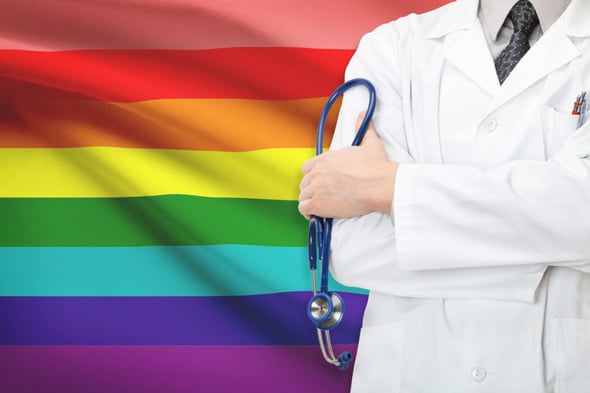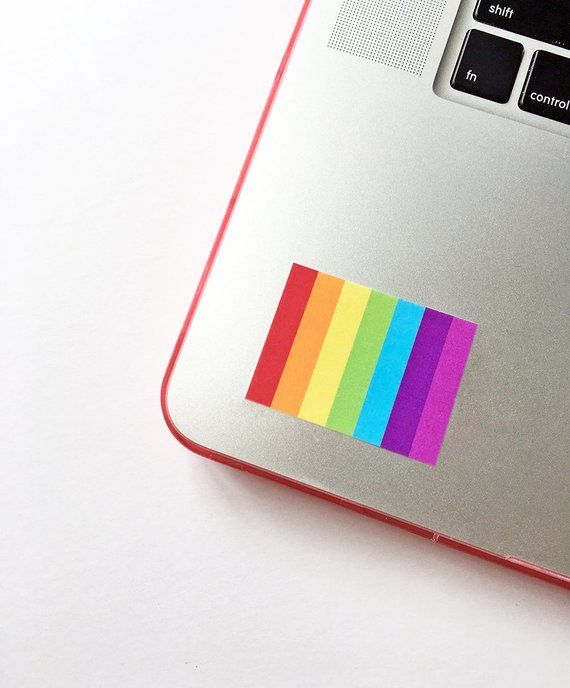I was dressed in a navy suit with red corgi socks and a pink bow tie. I had looked at myself in the mirror earlier in the morning and sincerely asked myself if I looked “too gay” for this interview. After all, I wanted to be taken seriously, and I did not want homophobia – conscious or unconscious – to affect how my interview went. That being said, I decided to embrace the aesthetic and go for it. I have a vibrant personality, and I did not want to mute myself in any way.
Muting ourselves (or “covering” as described in Kenji Yoshino’s brilliant Covering) allows queer people to pass through life. LGBTQ+ people often intentionally closet themselves in order to not inconvenience other people, to avoid unsavory questions, or frankly, to stay safe in a heteronormative world. Staying closeted does not disrupt the status quo around us, and though it can be comfortable in some situations, it often can feel like a heartbreaking denial of self. Coming out is a conscious choice that queer people make as they encounter new people. However, during application processes for schools or jobs, coming out has new professional ramifications to consider.
When applying for a job as a psychiatry resident this year, I had to write a personal statement explaining why I wanted to pursue psychiatry as a career. And as I spent hours at my laptop, I kept on running into the same question – should I come out in my application?

Obviously, being gay is a significant part of my life. My highest highs and lowest lows came from my journey through sexuality, and it would have been disingenuous to not have that showcased in my application in some way. I love being visibly queer, and I was not about to closet myself for the sake of “professionalism,” a term often used to repress minority voices. I wanted my interviewers to know that I was going to be unabashedly queer, bringing those perspectives into their workplace and advocating for LGBTQ+ populations whenever I could.
But I was also thinking about the consequences of what coming out could mean. I would not get an interview from a program if the director was blatantly homophobic, and even if a director were not blatantly so, I would likely get treated somewhat differently on interview day. Coming out also has more subtle effects. For example, coming out as queer explicitly in an application could pigeonhole how your reviewers think of you, deprioritizing other impressive, valuable components of your application.
In the end, I decided to write about my own coming out in my personal statement. Psychiatry is likely the most progressive field of medicine, and the majority of residency programs had out LGBTQ+ people and programming embedded in their daily work. I also felt like my coming out story had a gigantic impact on why I wanted to enter psychiatry, and it gave my application more legitimacy. I made the decision that if a program did not want to interview me because I was gay, I would not want to be a part of that institution in the first place.
That being said, I also know that I come from privilege. I felt safe coming out in my application, and I assumed that I would be able to land a job even if some of my potential employers were homophobic. Many queer people do not have the luxury of coming out in a cover letter, scholarship application, or job interview due to concerns for safety or financial instability. And even if they do, many queer people choose to not to come out, because they want to keep personal lives personal.

Coming out is an immensely personal choice. Everyone arrives at their sexuality differently, and everyone has the right to tell (or not tell) other people about it in their own time. These decisions often require critical thought, and they often are not easy. Careful consideration of the surrounding situation and asking oneself why they are coming out should be key components of coming out or staying closeted in an application. Ideally, we are moving towards a world where coming out does not have negative impact on professional lives. But until then, LGBTQ+ people will continue to support each other as we advocate for a more nuanced, less heteronormative society.
Applying for residency is an unbelievably anxiety-ridden process, one that is often filled with imposter syndrome. The months feel incredibly long, and I was often fatigued and frustrated. However, as my Match Day approaches, I have to say that the journey feels worth it. I am genuinely excited to begin a career in medicine, and I am so grateful to the mentors and friends who made this all possible.
 This post was written by ViiV Healthcare Point Scholar James.
This post was written by ViiV Healthcare Point Scholar James.
James is currently studying Child and Adolescent Psychiatry at the Mayo Clinic Alix School of Medicine. As a resident, James plans to provide excellent mental healthcare to queer youth and continue his work as a fierce educator, writer, and researcher for queer people across the country.

